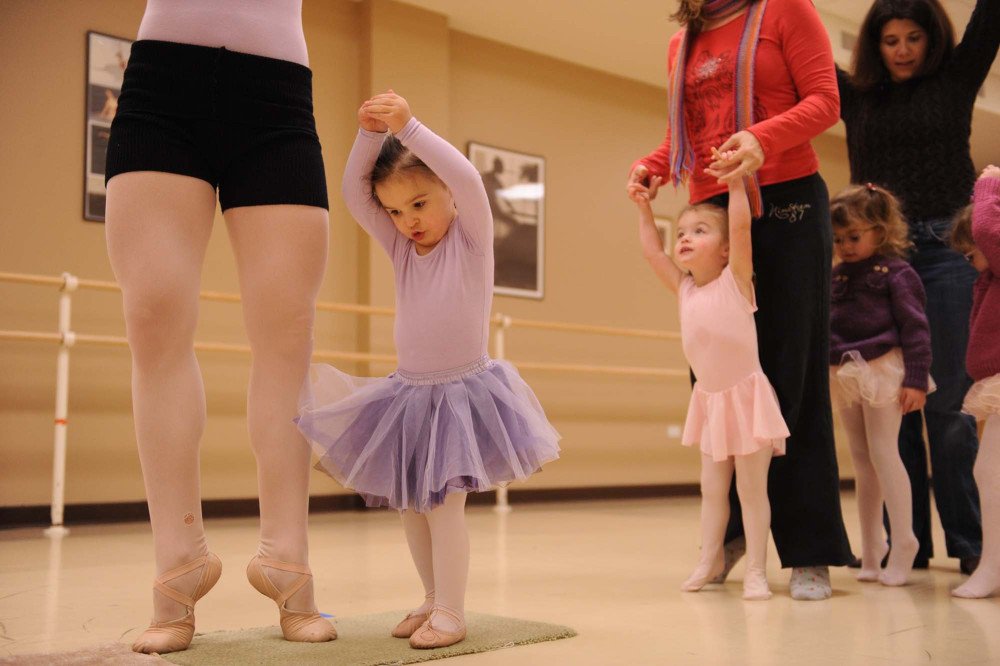By Vikki Ortiz Healy
Chicago Tribune.
After combing through the local park district’s brochure outlining class offerings, I and two other working moms I know realized we had one choice.
Our 4-year-old daughters wanted to take ballet/tap lessons. There were a plenty of such classes offered in the mornings and early afternoons. But those were not options for any of our three families for several reasons: two-working-parent households, day care and nanny limitations, and preschool schedules.
So, with much trepidation, we signed up our girls for a 5 p.m. Thursday class, figuring we’d have to reconfigure our work hours, bring projects home and negotiate with our bosses to make it happen for our budding ballerinas.
It was still going to be stressful: Anyone with a 4-year-old knows getting her dressed and out the door is challenging even without having to dash out of work and contend with rush-hour traffic. But because we didn’t want our work obligations to deprive our girls of an enriching opportunity, we were ready to make frantic Thursday nights a new weekly ritual.
Which is why it was particularly frustrating when, two weeks before the class was scheduled to begin, we got a call from the park district. The Thursday 5 p.m. class was canceled due to low enrollment.
With tap and ballet shoes already ordered online and on the way, we searched surrounding communities and private dance studios for other classes that might work for our after-work weekday schedules. We couldn’t find any.
And several weeks later, I still find that hard to believe.
Given the millions of women in the workforce today, and how the role of fathers has evolved to be much more actively engaged in child-rearing, it’s hard for me to understand why some things, like ballet/tap classes for toddlers, still seem designed for families with a parent at home all day.
I wonder how three moms could possibly have been the only ones in town interested in getting our girls in an activity after work hours? And why don’t our local park districts offer more options that are not during the day?
Park district officials from the Chicago suburbs of Naperville, Orland Park and Elmhurst offered enlightening answers that are helping me to understand that it’s not a vendetta against working moms, which I’ll admit I sometimes perceive too quickly.
Park districts go to great lengths to collect data on what classes residents want. But ultimately, the scheduling is a delicate balance of demand, teacher availability and space at the venue, officials said.
“Most often it comes down to facility availability, having the correct room available as well as appropriate instructor available,” said Brad Wilson, director of recreation for the Naperville Park District.
Park district officials also noted that the other two moms and I happen to have children in an age bracket, 3 and 4 years old, in which the lack of class offerings in the evening is particularly pronounced.
In Elmhurst, there is a large contingent of stay-at-home moms who appreciate the daytime class offerings for the younger children. Conversely, there also are working parents who tell park district officials they would rather keep their children at home in the evenings after a long day away at school or day care, said Jim Rogers, executive director for the Elmhurst Park District.
“Parents who work and then have children in any type of a day care center, they aren’t necessarily interested in experiences that involve socialization for the kids because the kids already got that through the day,” Rogers said.
Other times, parents say they are less likely to sign up their child for an evening class because it interferes with dinner and bedtime routines, said Joe Lamargo, public information officer for Orland Park.
I certainly can understand the desire to give your child quality time at night, while keeping them on track for their nighttime routines. It still frustrates me just a little to think that only a handful of parents thought it was possible to enjoy quality time and stay on track while our toddlers wore tutus and tapped across a stage.
But the park district officials assure me things will get better, all three of the communities’ weeknight offerings multiply when children reach 6 and 7 years old and can participate in youth programs, they said
Until then, I guess I have few choices but to join the crowds of parents packed into activity center lobbies on Saturdays.














































































































































































































































































































































































